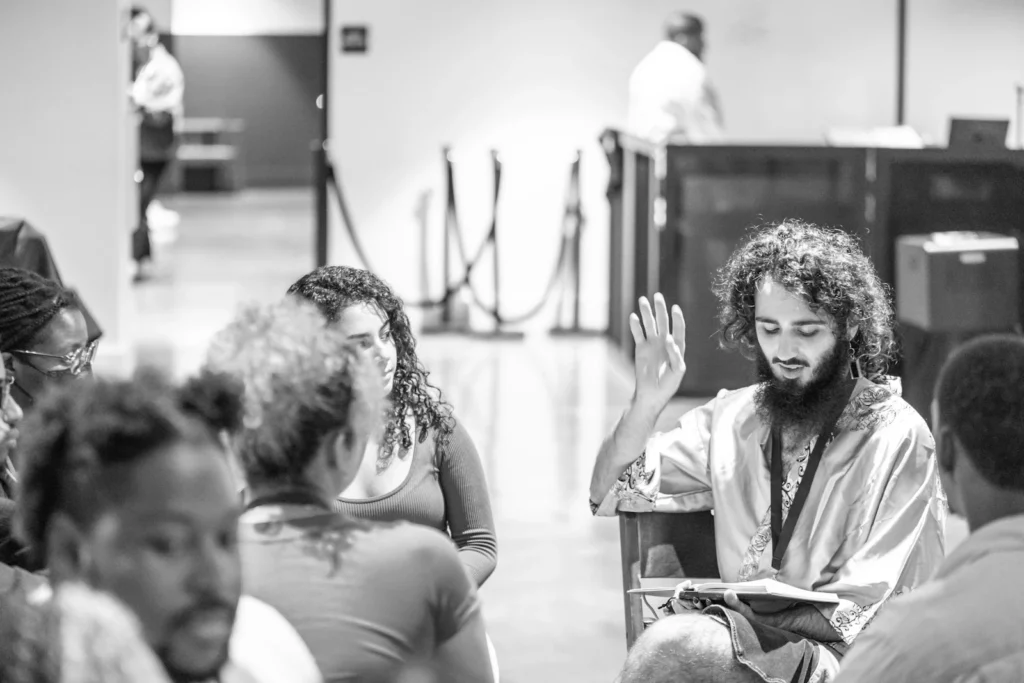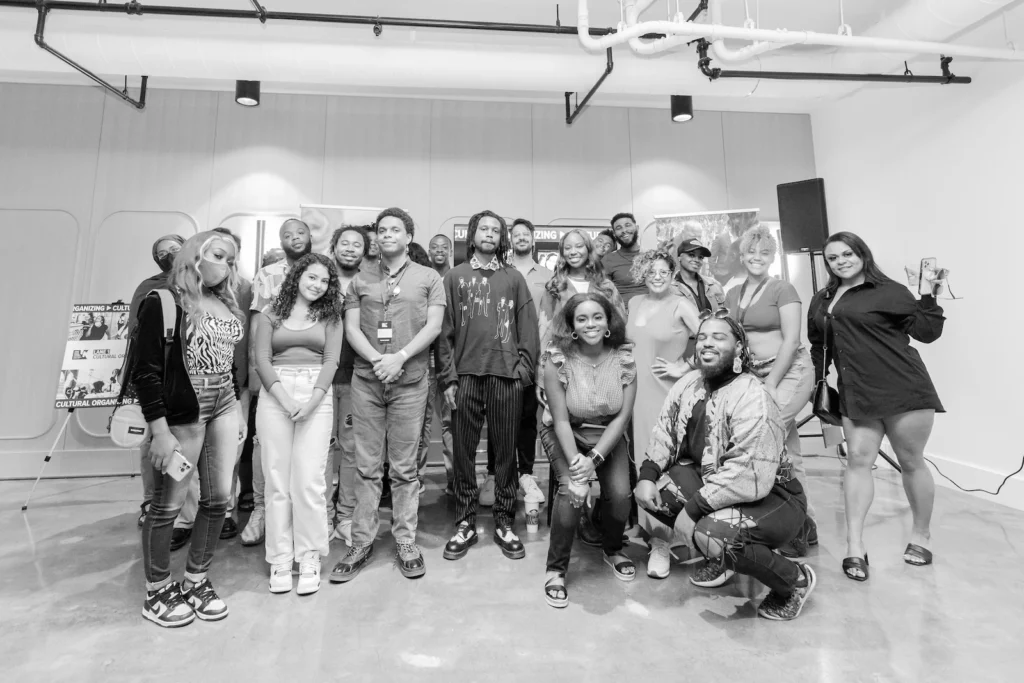Share
Become a Fellow
The John Lewis Young Leaders Fellowship is now accepting applications for the 2025-2026 cohort. Students should submit their application by February 28, 2025.
What We Are Looking For
The John Lewis Young Leaders (JLYL) program looks for highly motivated students who are interested in making a career out of organizing work. These students should be self-starters and not afraid to go against the grain. Students should be able to see themselves as human rights defenders and be impact-minded. Most importantly, we look for students who come from marginalized backgrounds and are most often targeted by systemic issues that do not afford them the opportunities and resources needed to become human rights advocates.
Eligibility Criteria:
- An undergraduate student
- Enrolled in a 2 or 4 year accredited program
- Enrolled in a university located in the United States
- Graduating on or after May 2026
Priority is Given To:
- Students attending an HBCU, HSI, or HMSI
- Students from marginalized communities
Responsibilities:
- Attend the 4-day John Lewis Young Leaders retreat, where you’ll participate in organizing workshops
- Meet with RFK Human Rights staff monthly for 1-on-1 coaching
- Attend all monthly cohort meetings held on the 2nd Monday of each month
- Complete a capstone presentation with an overview of your capstone project at the conclusion of the fellowship
Fellowship Benefits:
- $2,000 professional stipend (paid in two $1,000 installments over the fall and spring semesters)
- $1,000 in funding for events and activities related to the completion of your capstone project
- Paid-for retreat in the summer of 2025
- Agency to focus on elevating social issues that motivate and inspire YOU
- Access to content-rich resources from expert community organizers and activists
2025-2026 Cohort Timeline
Weekend Fellowship retreat: June 12 – June 15, 2025 (location to be decided)
Fellowship Start Date: August 11, 2025
Capstone Proposal Due: September 14, 2025
Monthly Meetings: Second Monday of each month
Fellowship Ends: May 30, 2026
Anti-Discrimination Policy
Robert F. Kennedy Human Rights expressly prohibits any form of discrimination in the provision of employment opportunities, benefits or privileges; to create discriminatory work conditions; or to use discriminatory evaluative standards in employment if the basis of that discriminatory treatment is, in whole or in part, the person’s actual or perceived race, religion, national origin, ancestry, color, age, sex, physical or mental disability, medical condition, military/veteran status, gender, gender identity or expression, sexual orientation, marital/domestic partner status, caregiver status, genetic information, personal appearance, family responsibilities, matriculation, political affiliation, domestic violence victims, source of income, place of residence, pregnancy (including childbirth lactation and related medical conditions), past or present service in the uniformed services or application or obligation to serve in the uniformed services (status as a veteran or active military service member), sexual and reproductive health decisions, arrest or conviction record, unemployment status, status as a survivor of domestic violence, sex offenses, or stalking, or any other basis prohibited by applicable federal, state or local law (“Protected Characteristic”). or any other legally protected characteristic. Improper interference with the ability of other employees to perform their expected job duties is absolutely not tolerated.
Discrimination of this kind may also be strictly prohibited by a variety of federal, state and local laws, including Title VII of the Civil Rights Act of 1964, the Age Discrimination Act of 1967 and the Americans with Disabilities Act of 1990. This policy is intended to comply with the prohibitions stated in these anti-discrimination laws.



Help us protect human rights
Please give now. Your contribution will make a difference in the critical effort to achieve equal rights for all.

